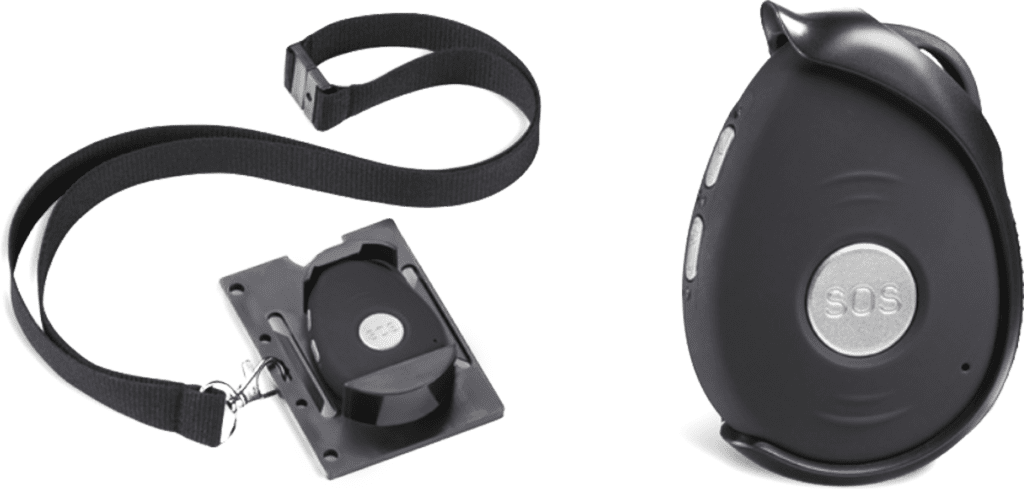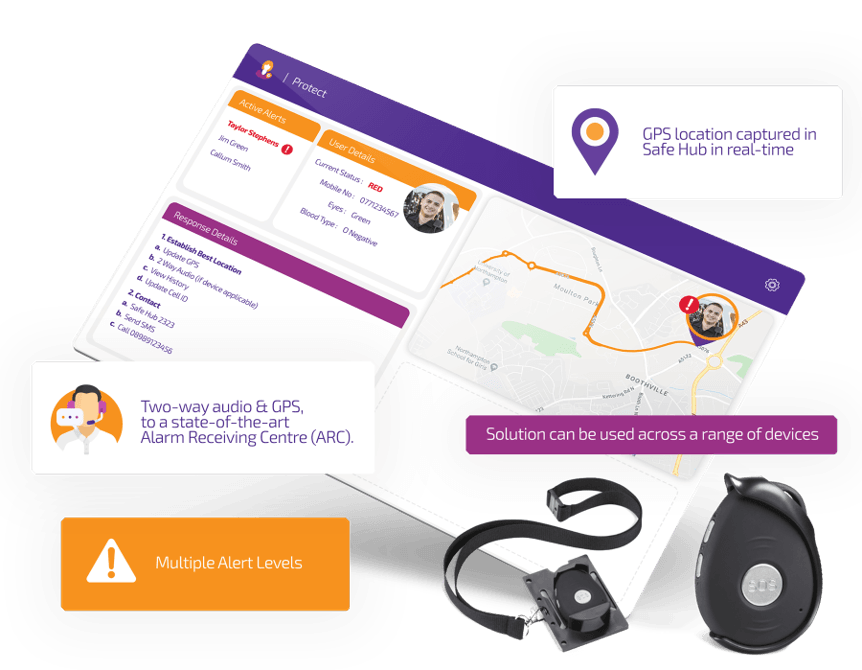A Guide to SOS Fobs – Personal alarms for lone workers
Due to the current pandemic more and more jobs across a wide range of different sectors are being carried out remotely by lone workers. It is important for health and safety executives to understand the unique requirements involved in keeping this part of the workforce safe at all times.
Who are lone workers
Lone workers are those individuals who work by themselves without close or direct supervision with their work colleagues, such as:
- Delivery drivers
- Health workers
- Engineers
- Security staff
- Cleaners
- Warehouses staff
- At home
It is estimated that up to 8 million people in the United Kingdom are lone workers, that’s 22% of the 31.2m UK’s working population.
The Health and Safety Executive have defined lone workers as those who work by themselves without close or direct supervision. As an employer, it is important to manage any health and safety risks before people can work alone. This applies to anyone contracted to work for you, including self-employed people. There will always be a greater risks for lone workers without direct supervision or anyone present to help them if things go wrong.
With a continued drive to community-based services and more traditional office-based jobs being carried out at home, advances in technology are making it easier for employees to go about their working day without so much as seeing a colleague. Technology has made it easy to stay connected via mobile monitoring devices and trackers.
Monitoring and keeping in touch through
Organisations must monitor their lone workers and keep in touch with them from time to time during their working day. Making sure they understand all monitoring systems in place and any procedures the company uses. It is very important that lone workers understand these monitoring tools are in place to protect their welfare wherever possible and help is at hand should they need it. The monitoring allows:
- Companies to know where lone workers are
- Allows pre-agreed intervals of regular contact, using phones, radios, email
- Monitoring devices for raising any alarms, operated manually or automatically
- A reliable system to ensure a lone worker has returned to their base once they have completed their task
It is your duty as an employer to take every reasonable precaution to ensure the safety of your lone workers. Regularly test these systems and all emergency procedures to ensure lone workers can be contacted if a problem or emergency is identified.
Ways to protect lone workers
There are many ways companies can enhance the safety of lone workers and also complying with both moral and legal obligations by law. Companies should also conduct a lone working risk assessment for each of their staff members who potentially will be working alone during their working shift. It is essential to have a lone working policy, provide training on how to use the systems and how to effectively use personal safety alarms and monitoring software when required.
With advanced technology and high levels of access to smartphones, having apps and specialist devices will provide your lone worker with support 24/7 should they need it. Lone worker alarm systems provide employees who work alone a way to signal for help in an emergency. The alarm is usually triggered on a smartphone or device, and is sent to an external monitoring station, an employer or even the emergency services depending on what type of alarm was raised by the lone worker.
 Lone worker alarms
Lone worker alarms
The most common type of lone worker alarm is the panic alert, all lone worker alarms allow the lone worker to raise an alarm when there is no one around to offer them support or help. Having a range of alerts keeps your lone workers protected in different situations. This allows companies to meet their duty of care while providing lone workers confidence knowing their safety is being looked after.
A key action for organisations is to ensure their lone workers are supplied with an alarm. This provides a vital source of support when needed and helps deal with everyday scenarios lone workers may face in their job. Loan worker solutions offers a number of different devices to help protect your lone workers everyday and they come in different varieties depending on your job. However, one of the most popular of these devices is the SOS Fob.
The perfect personal alarm device for lone workers – SOS Fob
SOS Fob is a lightweight, compact and waterproof lone working device. It deploys two key technologies: Global Positioning System (GPS) and Global System for Mobile Communications (GSM). Together, these enable the Alarm Receiving Centre (ARC) to locate a lone worker and communicate with them via Protect in the event of an emergency. They can easily leave a Yellow Alert message at the touch of a button. And built-in motion and shock sensors support our reactive Worker Down feature.
SOS Fob is a BS8484:2016 Gold Certified specialist lone working device. Discreet, durable, waterproof and lightweight, it can be clipped into a specially moulded identity badge, or worn in an arm or belt holster, or carried in a pocket.
SOS Fob deploys two key technologies:
- Global Positioning System (GPS) locates your lone worker in an emergency.
- Global System for Mobile Communications (GSM) allows workers to speak directly to operatives at the Alarm Receiving Centre (ARC).
Roaming multi-network SIM
To maximise signal coverage even in areas of poor reception. We can supply SOS Fob with a roaming multi-network SIM. This has been highly effective for major clients such as Centrica, Bristol Water, Essex County Council, NHS Trusts and Wessex Water, who collectively have over 10,000+ SOS Fob devices deployed across the country in rural and coastal areas. The SOS Fob are also now available in a 4G version proving even greater coverage.
 Fine out more about Lone Worker Protection and view our Lone Worker Software – Protect
Fine out more about Lone Worker Protection and view our Lone Worker Software – Protect







